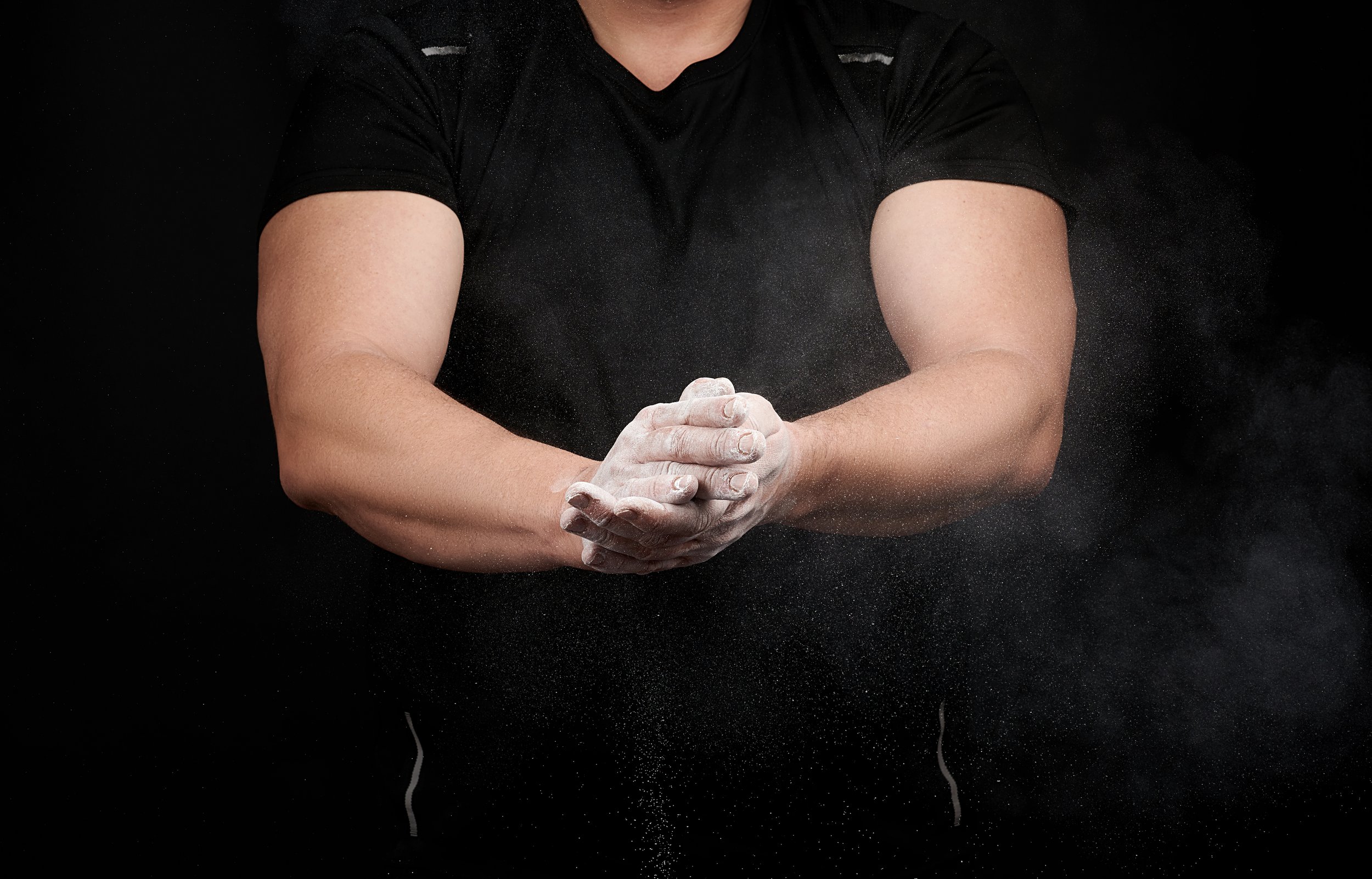Why Men Need to Talk about Depression.
Men and mental health are all in the same boat. Talking out our troubles makes all boats rise.
We need to talk about something important, before it kills us: men and depression.
It’s a taboo topic that doesn’t get much press in society, but it really should. Although men fancy ourselves as strong creatures, bastions of emotional self-control—we aren’t unfeeling robots. We certainly don’t want to be silent robots that won’t utter a single word before breaking down—or self-terminating. Men in the modern world are in a state of crisis, and if you think that’s a stretch, let me lay down some facts.
Per the CDC in 2020 an estimated 9.6 million men considered suicide [cdc suicide facts], with the number of male suicides 4 times greater than females [apa.org]. So that means over 75% of suicides in America are men. What’s grinding men down to the point where they even consider ending their lives?
Well, per a 2013 study in JAMA Psychiatry 30.6% of men sometime in their lives suffer some form of depression—and over 9% report suffering depression daily! Not only that, but when a gender inclusive depression scale was used to detect male triggers of depression, the rates were approximately the same as females. Unlike females however, mental health issues went largely undetected and untreated—largely because men just don’t talk about their depression [jama].
So, it’s clear with have a mistreatment of men in healthcare and by society in America today but gynocentric media sweeps it under the rug. Yet, men and masculinity is the cornerstone holding society together. No society survives without a strong virile force of men to work and protect. Despite this, unless you look hard for the startling high statistics on male depression and suicide, you will only find at best a passing mention on the news. Society needs to do much more than just recognition or the handing out token words of sympathy. We as a culture need to define the problem, figure out why it is occurring, and provide real solutions. But before we get started on that, I’m going to share my personal story involving depression.
Table of contents:
My personal bout with depression.
For the last twenty-five years, I’ve worked as a physical therapist, helping the sick and the injured recover their independence in order to go home with their loved ones. I considered myself part of a caring healthcare community that took care of patients to the best of their ability. The best parts of my job were listening to people’s life stories and feeling like my work mattered.
Then last year I hit 50 years of age and I suffered a lower leg injury of my Achilles and Peroneal tendons, while assisting an elderly woman from bed to chair. The skilled nursing facility I’d loyally represented for almost a decade attempted to deny the claim at first. With the help of a lawyer, I battled it out with the insurance company, who always have a better idea of the process. They heckled my family through a gauntlet of justifications and grueling paperwork for medical treatments.
It didn’t help that the lower extremity MRI didn’t show much, and my doctor didn’t seem to have a clear idea what to do. He put me in a boot, and later in a cast which just made it harder to get around so my overall health declined. Then I went to physical therapy for 8 weeks and religiously did follow-up exercises at home, but I just seemed to have one setback after another if I pushed forward even moderately. After I had a couple falls, I started having some very dark thoughts that I didn’t share with my wife, at first.
For twenty-five years I had been the primary breadwinner of my family, while my wife stayed home with our daughter. And, until my wife found a job, financial pressures were high. I’d always been able to rely on my physical strength and emotional fortitude, but not anymore.
I found myself having anxiety that came and went, with runs of stomach upset, reflux, and tightness in my chest. I also felt like my body would reach a critical level of stress and then a switch clicked off, leading to a period of total apathy, as in I just didn’t care what the future held in store for me. I know that was depression now, but I didn’t recognize it at the time.
Although my symptoms improved somewhat, I realized my days as a physical therapist were over.
At that point, nearly a year after the injury, I felt like a different person. As a therapist, I’d helped people. I had a clear purpose and a connection with my peers. Now, hardly anyone called to check on me, and it was almost like I had just disappeared, like I’d fallen off the grid, now that my usefulness as a therapist had ended. I felt almost sick in my soul, used up, and ground down. I felt OLD for perhaps the first time.
While everyone else was going to work, socializing, and accomplishing their goals, I was stuck at home, barely able to walk, and isolated. Although I didn’t think of it at the time, I was working through an existential crisis.
So, what’s life going to be like now? Is this it?
I worked my whole life helping others, and now I’m just to be kicked to the curb?
What’s my purpose? What gives me value now?
Life settled. The insurance claim settled. I learned to flex and accept that life changes. My ever-supportive wife and I switched roles in the home, where she became the provider, going to work as a switchboard operator at a hospital and I took care of my wife, and daughter. I took up cooking and started enjoying it. I got a lot more quality time with my daughter than I’d ever had before. I started a pyrography art business, a previous hobby, but it didn’t produce much income. I’d written some fictional stories in the past so my brother suggested we start writing together for a blog, a talent I’d never used much, but found I really had a passion for. And it was nice teaming up with my brother too. Joy came back to my life, different, still a little scary, but doable. I had projects to work on, goals to pursue, and achieved a different state of happiness.
As a therapist I’d talked to enough people in my life to know my challenges and battle with anxiety and depression weren’t uncommon, but I never saw any coverage in the media about men and depression. Men’s issues just never seem to gather much public attention, like no one wanted to talk about it.
But we are going to talk about it now.
What's bringing males down?
What is making guys sad in society today? Why are men increasingly depressed and committing suicide in record numbers? Well, we know that men and women differ in the causes and expression of depression. Whereas women report a variety of life factors triggering depression, men usually report barriers to career and goals. Physical effects of depression are often noticed first. With males, doctors are more likely to be contacted about ailments of the body than of the mind. Unfortunately, male depressive symptoms are often missed by doctors as traditional depression screens are not very sensitive to depression in males, not to mention the fact that males tend to be less willing to go to the doctor.
Common male specific symptoms of a depressive episode are as follows: chest tightness, digestive issues, erectile dysfunction, weight loss or gain, heart palpitations, headaches, or pain [Healthline] as well as possible irritability, suicidal thoughts, reporting unable to meet work or family responsibilities, high risk activities, heavy drinking, having unprotected sex, and withdrawal or isolation. And, if a person is depressed for more than two weeks, it is defined as a major depressive episode per the National Institute of Health (NIH) guidelines.
Depression--why are men different?
Using traditional [masculinity] as a role model, men are supposed to be aggressive, protective, hypersexual, and above all TOUGH. As in possessing the ability to sustain physical or emotional pain without complaint. Boys in school and at home are taught to “Be a big boy” and “Man up”. These prohibitions against showing emotion continue throughout men’s lives. Although modern celebrities and media moguls advise that men should open up about their feelings, men get a very different message from the treatment of men in the news and in culture. The truth is that men that submit stories to a media platform about their views don’t seem to get much coverage, or their views are actively suppressed through interviews decidedly slanted against the male.
And what about if a male reveals his thoughts to his female partner? In a survey of 1500 men and women 95% of women say they prefer men to be more open with their feelings, however 85% of men feel they are viewed as less attractive if seen crying [Elite Singles]. In fact, the Mantorshift Institute when conducting a qualitative research project in 2020, interviewed 200 men to find that men reported if they showed vulnerability to their female partner, she demonstrated signs of apprehension or disapproval [Psychology Today] Men come to quickly realize when women say they want their men to talk more, it really means they want men to be willing to listen to women more actively. Or women want to think they know men’s thoughts to make her feel more secure. In fact, men that are too open emotionally can make their partner view them as less attractive.
This pressure from multiple sources to keep men silent about their emotions generates significant pressure. Men make this pressure worse by avoiding talking or seeking support from their friends of family with only 26% doing so, compared to females 56% seeking support from friends or family [Elite Singles]
If depression is a daily war, where are men’s allies?
What can a man do to feel better?
If you’re a man that is feeling a loss of [joy] in your life, emotional sadness, depressive symptoms, or any significant change in your personality, please go TALK to your friends and family. Your family and friends care for you and need you to reach out for support when you are struggling. Share your issues with your male friends, as it is certain at least one of them has at some point experienced similar feelings. Men are all in the same boat. And talking makes all boat rise.
If you don’t feel like your partner or spouse will be receptive, please re-examine that assumption. A relationship is about keeping your partner cued in to how you are doing, isn’t it? And if you’re married— remember your wedding vows? —in sickness and in health?
If you can’t talk to family or a friend, here’s what to do if feeling down, go to a therapist to help you vent some pressure and reorganize your thoughts. Support mens groups can be very helpful too. Opening up about your feelings in a safe forum can be very helpful to guys. Additional suggestions on how to help yourself include:
Perform daily exercise.
Break down life tasks into smaller parts.
Postpone major life decisions until you are better.
Try to keep a routine to reduce stress levels.
Avoid relying on substances for stress relief like alcohol or drugs.
Seek out Brotherhood with interaction with other men that know how you feel, and what you are going through.
If you have two weeks of changes in behavior, GO see a doctor. Common clinical treatments for depression include:
Psychotherapy or talk therapy
Cognitive Behavioral therapy
Interpersonal therapy
Problem Solution therapy
If your doctor prescribes depression medications, TAKE them as directed, don’t just stop after a few days. Usually, depression meds take several weeks to work and you will see improvements in concentration, appetite, and sleep disturbances before any changes in your mood. Don’t let side effects deter you from taking the medication, but if they are severe, speak with your physician to try out a different medication.
Common depression medications include:
· Serotonin reuptake inhibitors (SSRI)
· Serotonin-norepinephrine reuptake inhibitors (SNRI)
· Tricyclic anti-depressants (TCA)
· Monoamine oxidase inhibitors (MAOI)
Above all, change your mindset.
You can’t hold up the world. So many men just keep grinding away, holding it all together with the belief no one else can carry all the burdens of the family or their job at work. they push on past the point where they feel spiritually sick. Realize, everyone must stop sometimes and take a break. Get back to simplicity and [purity] to nurture your soul. Depression is a daily thing that saps your will to continue so self-treat by knowing when it’s time to sit down. Football players don’t play the whole game, they sit out to recharge. So put down the ball. Things can change, roles can shift, and lifestyles can be modified.
Don’t take everything on your back and expect to carry the burdens of your family or your job alone every single day until the last. It’s not realistic–that is not the way life works. Even just saying it out loud is depressing, isn’t it?
Put down the weights for a while; someone else will pick them up and carry them for a bit. Just because you can’t carry the same responsibilities as before or work the same job–you haven’t changed inside. You still have value. You will find new goals, and a new purpose to pursue. Sports players move on to coaches or scouts, they don’t play forever. Yes, it’s scary, but it’s natural and necessary. Be willing to let some things go—so you don’t crash and burn.
If you think you might have depression, there are many resources available such as the National Alliance on Mental Illness [NAMI] at 1800-950-6264. If you’re thinking about ending your own life, or know someone that is struggling, there is a 24/7 day a week Suicide & Crisis Lifeline 988. You can call or text, or chat 988lifeline.org. Or please free free to contact us to talk at Bonfireblogs. We’ve gone through it.
Conclusion.
I hope my readers will have a better understanding of the crisis we face in society regarding men and depression. We need to take care of the makers and defenders of society before they break down. I pray that men who feel alone and are wondering what to do with their life, will read this blog and understand we are all going through the same things. It’s okay to admit you are struggling. Go get treatment, whatever that may be. Talk to your family. Reach out for Brotherhood and talk to other men as you will hear many stories just like yours. We are all dealing with something. And we can all extend a hand and help each other.
“We can’t help everyone, but everyone can help someone.”
Ronald Reagan
*If you appreciate this blog, or think you might be experiencing depression, please feel free to comment below or contact us to share your experiences. Or connect with us on Twitter X or Facebook as Bonfire Brotherhood. We are here to help.




![Synergize for Success with these 12 Simple Habits [The Win Strategy for Life].](https://images.squarespace-cdn.com/content/v1/64022a4400740d00e1487efc/1704481344110-15SJXQMYN9XYA5S42HIY/smiling-handsome-businessmen-hugging-and-looking-a-2023-11-27-04-50-31-utc.jpg)
![How Does Synergy Lead to Success in Life? [Why Purposeful Living is Key].](https://images.squarespace-cdn.com/content/v1/64022a4400740d00e1487efc/1707428245575-J1HG8D5K107DQV6AL4WT/_9e23e4e9-8f45-43de-99f3-457050bf4968.jpg)
![How Do Men and Women Communicate Differently? [A Comprehensive Guide on Bridging the Gender Divide.]](https://images.squarespace-cdn.com/content/v1/64022a4400740d00e1487efc/1706744853382-MUMWHVZNH11PYWATCO6V/_91375955-8da9-4535-bbf0-4eaf4ee0c856.jpg)



![The Rise of the Bitter Woman Syndrome [A Man’s Perspective]](https://images.squarespace-cdn.com/content/v1/64022a4400740d00e1487efc/1707609869660-MWMI0O984XBV5RWGG511/emotional-plus-size-model-standing-in-studio-holdi-2023-11-27-05-08-55-utc.jpg)
![Why Can’t Men Have Their Own Spaces Anymore? [And How It’s Harming Men.]](https://images.squarespace-cdn.com/content/v1/64022a4400740d00e1487efc/1699894290067-638UGOSDLHCU4X1FEVMI/men-playing-in-gamble-2021-09-24-03-51-26-utc.jpg)


![The 13 Pillars of Joy for Men [How to Find Happiness as a man]](https://images.squarespace-cdn.com/content/v1/64022a4400740d00e1487efc/1707611439989-795DJQTGDVMMM9PXS3GN/man+smiling+in+joy+in+front+of+pillars.jpg)